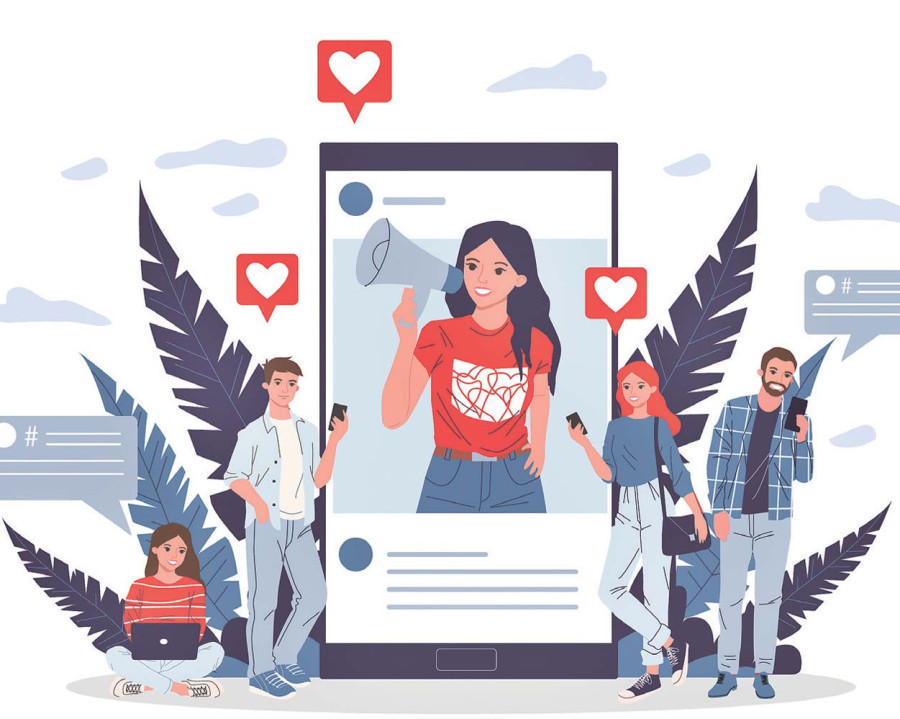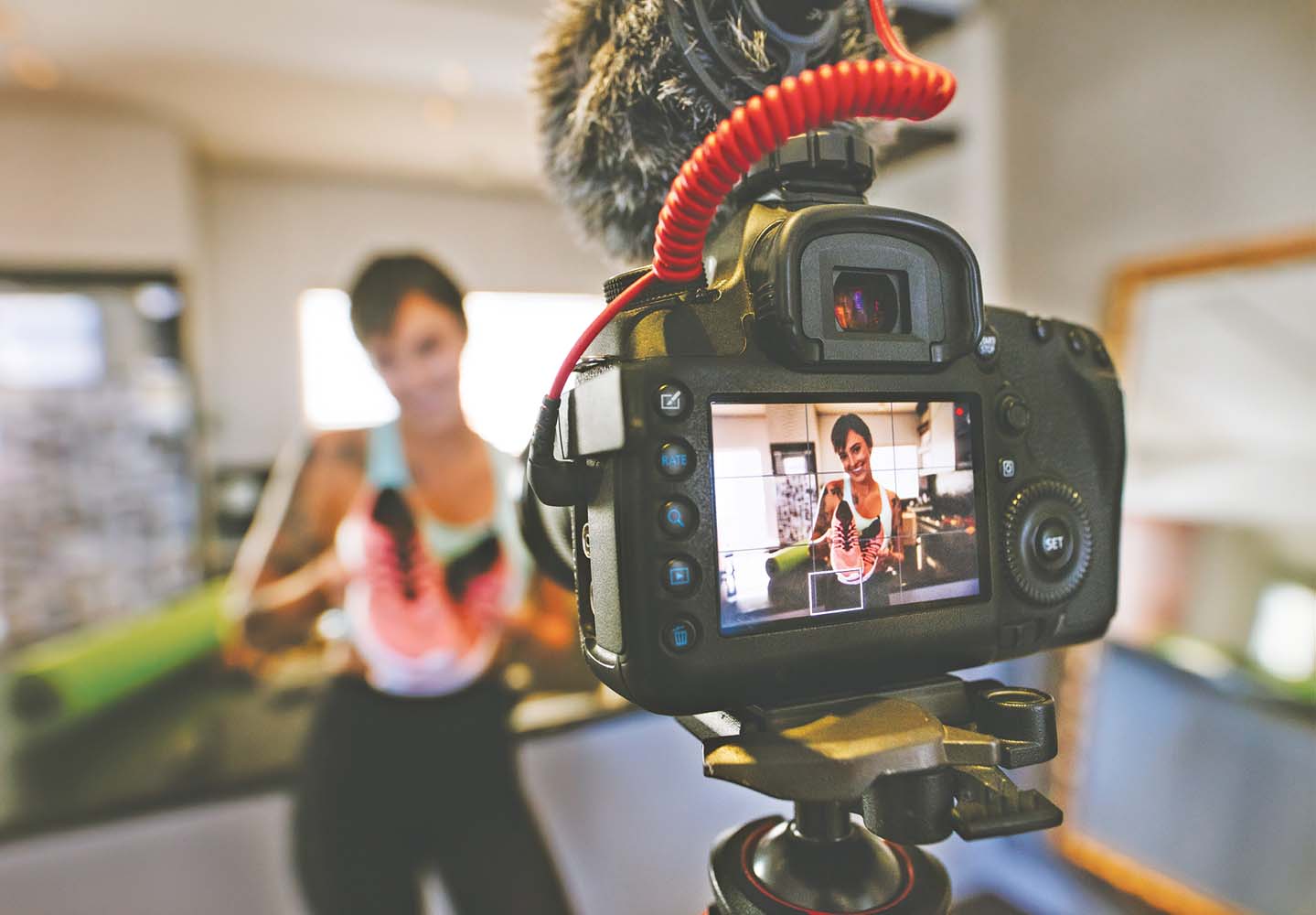Money
Influencer marketers leave celebrities behind
Businesses see social media as an efficient way to advertise their products and services.
Subin Adhikari
Theatre artist Ishtu Karki has been making funny videos for TikTok and Instagram during her spare time for years. Her clips were popular and frequently went viral, getting millions of views on social media.
Two months ago, various brands and start-ups approached her to make videos to promote their products. Now she is a full-time social media content creator, and has more than half a million followers on TikTok.
“You can make an impressive income by making promotional posts,” said Karki.
The promotions range from a simple post on Facebook/Instagram to a dramatic video on TikTok.
“The nature of the promotional post depends on the budget of the clients,” said Karki. “The price also varies depending upon how much reach and views the posts get on social media.”
Some brands ask her to create promotional videos to generate sales for a specific product while others just want to spread brand awareness among the public.
Most of her followers are 18 to 24 years of age. The companies for which she makes videos also offer products and services to this age group, such as educational consultancy, skin care products, and so on.
Influencer marketing combines both traditional and modern marketing strategies. It transforms the concept of celebrity endorsement into a content-driven marketing campaign for the modern era.
Influencer marketing, however, doesn't just involve famous people. Instead, it centres on influencers, many of whom do not view themselves as being famous in the traditional sense.
According to Influencer Marketing Hub, an influencer is a person who has the ability to influence others' purchasing decisions due to their stature, expertise, position or connections with their audience. He or she actively interacts with a dedicated audience in a certain area. The size of the following is based on how big the niche is for his or her issue.
Monayac Karki, founder of Uptrendly, a digital platform that connects influencers and brands in Nepal, says an influencer is anyone who understands a certain niche of the market, continuously talks about it, and has followers who consult him/her regarding the niche.
“Due to the rise of short video platforms like TikTok, anyone who can make innovative and catchy content can be an influencer,” said Karki.
“A film star or public figure might not have a stronghold in social media like these influencers, therefore, they are very efficient for brand promotion in terms of views and cost as compared to celebrity endorsers.”

The cost of influencer marketing is more affordable compared to other countries, therefore, it has become very popular these days, said Ashwin Neupane, creative head of digital marketing agency Digital Gurkha, in a recent interview with the Post.
“There are also ample micro and nano influencers such as moto vloggers, and food vloggers who hold great sway among their followers. Therefore, anything they endorse goes viral in a short time among their followers,” said Neupane.
“Besides, the companies can also easily see the views and reach of the post, which makes it more reliable compared to the traditional form of celebrity endorsement.”
Karki said, "The cost of an influencer marketing campaign in Nepal ranges from Rs1,500 to Rs150,000, so it has become the preferred choice for companies of all sizes."
Asra Bhattarai, brand consultant of Coca-Cola Nepal, said influencer marketing was more effective in informing the public about a company's new products and offers.
“As per our internal study, they are very effective in increasing the recall value of the brand among customers, but a separate research is needed to find out if they increase the company's sales,” said Bhattarai.
“Along with the expansion of influencer marketing, the field is getting cluttered in Nepal, therefore, it's important for creators to be creative and think out of the box to stay relevant in the market.”
As the advertising market is becoming more competitive, brands are moving towards unconventional methods such as influencer marketing. Customers have greater trust in the influencer they have been following for ages than a celebrity.
Another influencer, who wished not to be named, says influencers need to be more aware of the product and the company they are promoting, and they should not promote everything that comes their way for the sake of money.
Earlier this month, several popular sitcom actors and YouTubers were arrested for promoting prohibited products on their social media platforms.
"In addition to that, they also need to mention clearly that they are doing a paid promotion so that customers will be careful before buying the product thinking that it’s a genuine recommendation,” said the unnamed influencer.
“Products like food items, health care products, edible vitamins and supplements have a different effect on each individual’s body, so influencers need to be very careful while promoting them.”
Insiders say this kind of influencer marketing steadily reduces consumer options by preventing them from ever considering other accessible products.
Many shoppers consequently end up making hurried purchases. However, the majority of people are unaware that influencer marketing is not nearly as genuine as it is made out to be. In actuality, it's just another fancy way to market.
According to the Advertising Association of Nepal, the advertising industry in Nepal was worth around Rs13 billion in the fiscal year 2022-23.
Out of this amount, social media marketing done via official channels accounted for Rs4 billion and that done through unofficial channels accounted for Rs3 billion.
“But the trend of social media advertising via official channels is increasing in recent days as large social media and technology companies have been registered in Nepal,” said Som Prasad Dhital, president of the Advertising Association of Nepal.
The digital service tax guidelines, which came into effect in the last fiscal year, made it mandatory for all social media companies to get registered in Nepal and pay a 2 percent digital service tax.
Several technology companies such as Microsoft, LinkedIn, Google and Meta—parent company of Facebook, Instagram and WhatsApp—have been registered in Nepal.




 9.7°C Kathmandu
9.7°C Kathmandu















